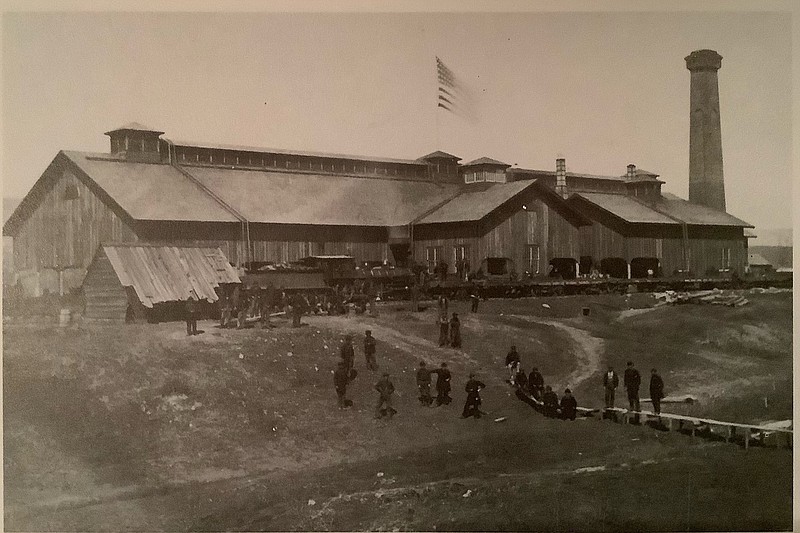The Union victory in the Battle of Chattanooga transformed the city into an armed camp swarming with blue uniforms, and swelled with the construction of warehouses, enhanced railroad facilities, mills, a shipyard, and a rolling mill and foundry, all meant to provide an advanced industrial base for Maj. Gen. William T. Sherman's invasion of Georgia. Even as Sherman marched through Georgia and on to the sea, the Union military maintained these facilities, protected by strong fortifications, to the end of the Civil War in April 1865.
In the months after the war, the bustling military post slowly began to revert back to civilian control. What follows are some random incidences indicating the return of normal life to the city in the months of 1865 after the end of the war.
In May, it was reported that the government "intends to vacate one of the large buildings on Lookout Mountain," used by the army as a hospital. The hospital was located about a mile and a half from the point of the mountain and was protected by a small line of works facing south.
On the evening of June 9, "a tremendous explosion and fire" occurred, destroying a large quartermaster's building and a purportedly quarter million dollars' worth of military stores. It was reported that the fire was started by a spark from a locomotive.
In early July, the railroad connection between Chattanooga and Atlanta was restored, and trains could "now run through to Augusta, Macon, Columbus, Montgomery, Mobile and all points south." Still, the road was "not yet in the best of order."
It was reported on July 11 that the military had interfered in an order from the Circuit Court ejecting a renter from a house. "The sheriff was ordered by a captain to desist from proceeding further in the matter. Some of the civil officers of the county are of the opinion that if they cannot execute the civil laws in cases arising between citizens, there is no necessity for their holding their offices."
In August, it was reported that watermelons "are plenty and cheap" at Chattanooga. In a similar commercial vein, it was reported that a glass manufacturer from Maine intended to locate a branch in the area. On the 21st of the month, a column of cavalry descended into Alabama to collect some government horses stolen by a rebel guerrilla. In Alabama, several ran afoul of the civil authorities, and there were arrests and counter-arrests. At the time of the report, 12 soldiers were still missing, but 20 of the Alabama men, mostly ex-rebel soldiers, were being held prisoner in Chattanooga.
Perhaps occasioned by the disastrous fire in June, late in the summer Col. W.B. Gaw of the 10th United States Colored Troops took command of the military post. Several drunken officers were arrested, and "the promulgation of an order forbidding the sale of liquor [has] had a salutary effect." It was noted that the "colored soldiers of the Colonel's regiment are all picked men, formerly of the engineer corps embracing mechanics of all kinds .... The town accordingly presented a "lively military appearance," and it was estimated there were about $7 million in government stores in the town.
On Sept. 15, proposals were made to purchase the U.S. Military Railroad's rolling mill at Chattanooga, along with machinery, tools, buildings, fixtures and track connecting the mill with the Nashville and Chattanooga Railroad. It eventually sold for $175,000, although the government could not give title to the land it occupied. Several government gunboats and steamers docked at Chattanooga were offered for sale in November.
At another point in September, it was reported there was a "very excited state of feelings between whites and blacks" in town. Northern men felt they were being discriminated against in business affairs, which was condemned by the reconstituted Chattanooga Gazette.
In November, smallpox gradually spread over the city. After a week, it was noted that the disease had "spread with a fury" in the freedmen's camp on the north side of the river. The contagion continued its spread into the next month. The week before Christmas, 140 citizens and 45 soldiers were hospitalized.
The end of the year saw the completion of a project to remove about 600 pieces of artillery from Chattanooga to northern storehouses.
Local attorney and author Sam D. Elliott is a former president of the Tennessee and Chattanooga Bar associations. For more information, visit Chattahistoricalassoc.org.
